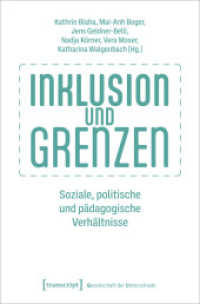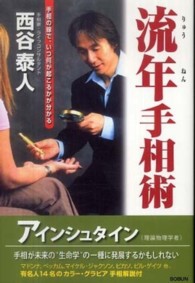- ホーム
- > 洋書
- > ドイツ書
- > Humanities, Arts & Music
- > Linguistics
- > english linguistics
Full Description
Terrorism has long been a popular subject for American fiction writers. This book argues that terrorism in 1990s novels by Paul Auster, Philip Roth, and Bret Easton Ellis serves as a key trope to interrogate the limits of writing and the power of literature. Based on the complex literary and philosophical thought of Maurice Blanchot, this study deals with the writer's terrorist temptation, language's investment in violence, and literature's negotiation of radical alterity. Auster's, Roth's, and Ellis's novels elucidate contemporary political and economic developments as well as our cultural fear of, and fascination with, terrorism. The writing of terrorism can thus become the foundation of a different politics where, according to Maurice Blanchot, «there is no explosion except a book.»
Contents
Terrorism in postmodern and neorealist American fiction - Maurice Blanchot - Paul Auster's debt to Blanchot - Aesthetics of rupture and transgression - Relationship of writing, terror, freedom, and death - Power of literature - Alterity - Emmanuel Levinas - The sublime - Terrorism as spectacle in global consumer culture








